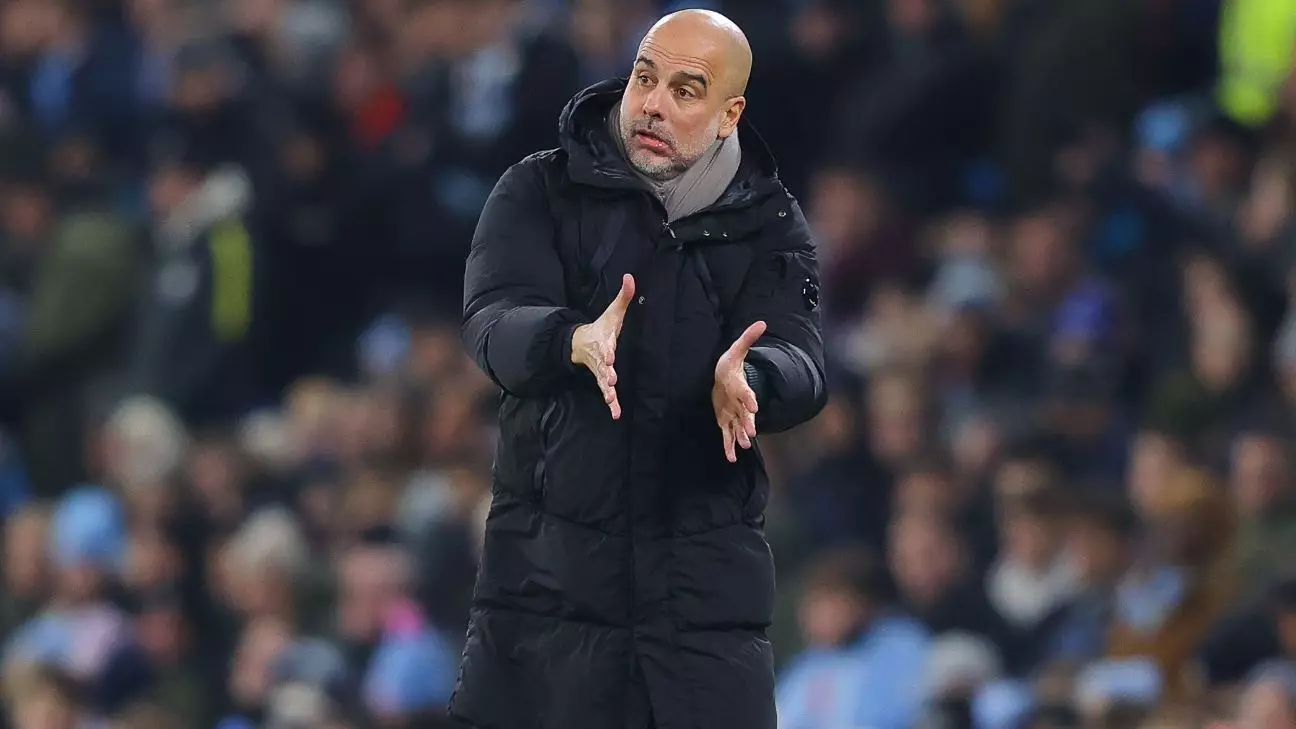In the world of football management, the ability to adapt quickly to the dynamic nature of player performance and health is crucial. Pep Guardiola, the mastermind behind Manchester City’s recent success, has recently reflected upon his summer decisions concerning squad revamps. Acknowledging that his hesitance to sign new players may have been ill-fated, he sheds light on the repercussions of injuries that have plagued City’s current season. This admission not only points to the challenges of maintaining a competitive edge in the Premier League but also illustrates the potential pitfalls of reliance on an existing squad.
Guardiola’s approach during the summer transfer window revolved around the faith he had in his core squad. With only the addition of Savinho and the return of Ilkay Gündogan from Barcelona, the limited signings have left Guardiola wrestling with an underwhelming roster, especially in light of injuries that have swept through the team. His stated desire to trust in the established players, however noble, has proven risky as the club navigates the challenges of a demanding season.
The implications of Guardiola’s decisions resonate deeply with the club’s performance. As injuries mount, notably among key players, it becomes increasingly clear that the decision to limit signings may have led to a less resilient squad. Accordingly, the team’s underperformance can be partially attributed to this oversight. Guardiola’s candid acknowledgment of the situation signifies a thoughtful maturity on his part, recognizing that the ambition of a club like Manchester City necessitates proactive strategies, particularly in times of adversity.
Moreover, the looming January transfer window presents an opportunity for correction. Reports suggest that Manchester City is already considering reinforcements to counteract the injuries and bolster its ranks. With agreement reached for Lens defender Abdukodir Khusanov and an eye on Eintracht Frankfurt’s Omar Marmoush, the club appears poised to turn a new page, challenging the futility of previous decisions.
Guardiola’s upcoming match against Brentford may be a telling moment, especially with the potential absence of captain Kyle Walker, who has expressed intentions to seek opportunities abroad. His departure could represent not just a technical loss but an emotional one for the squad, underscoring the challenges of maintaining team cohesion amidst uncertainty. There remains fervent speculation surrounding the future of young talent James McAtee, another player whose potential exit could signify a larger trend of talent dwindling.
As he prepares for the future, Guardiola’s remarks about McAtee illuminate a larger narrative about nurturing homegrown talent in the face of external interest. His commitment to keeping the promising midfielder at City suggests a prioritization of player development, even within an atmosphere of upheaval.
Ultimately, Guardiola’s reflective approach serves as a valuable lesson for football management at all levels. The need for balance between trust in established players and the willingness to adapt through acquisitions cannot be overstated. As Manchester City looks to strengthen its squad in January, this episode may sharpen Guardiola’s insight into navigating the complexities surrounding team dynamics and performance in a sport defined by rapid change and uncertainty. The coming months will be critical, as the club seeks not just to recover but to thrive in the competitive landscape of football.

